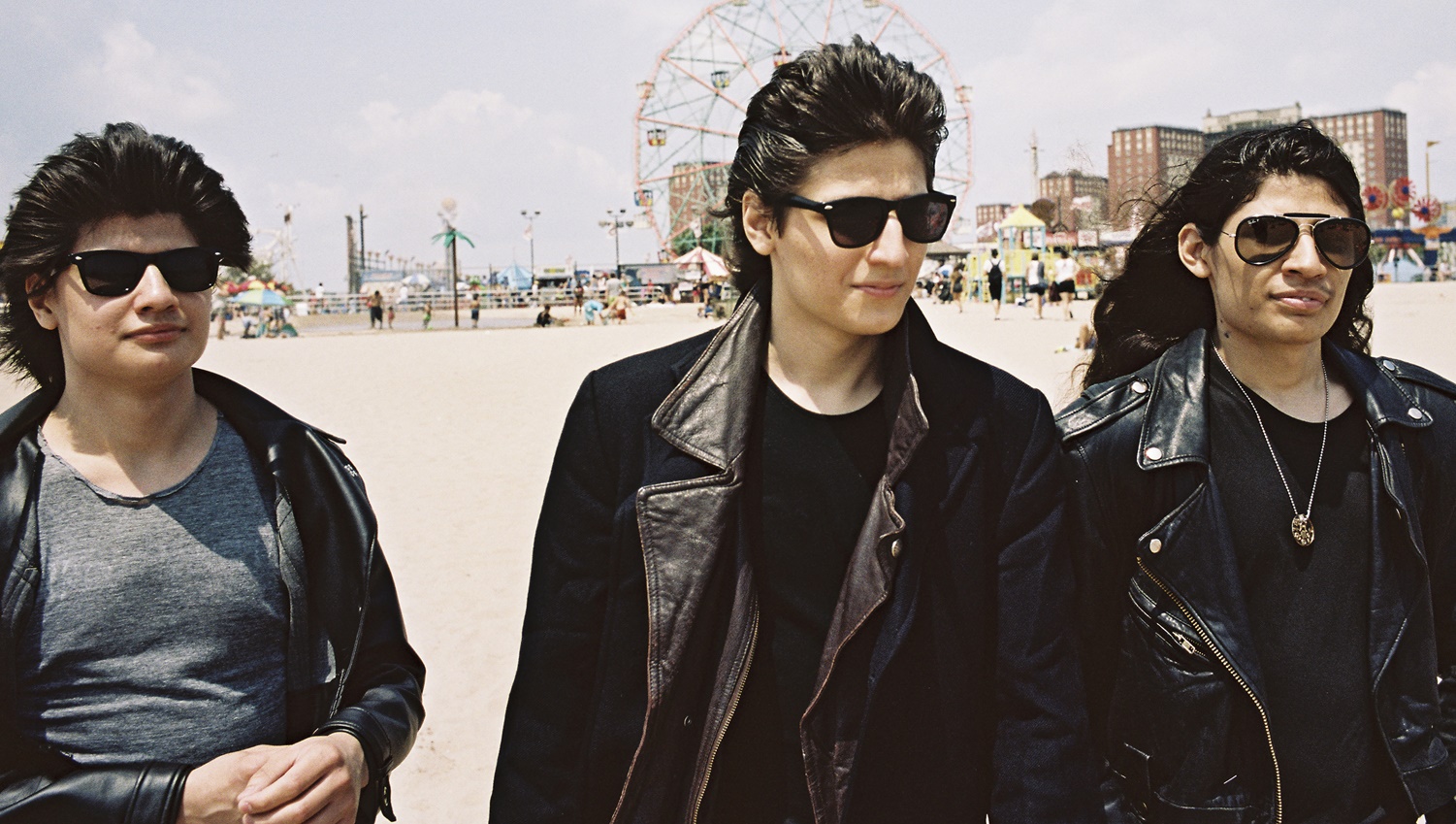
The Wolfpack
Dustin Chase
The idea behind The Wolfpack started one day when filmmaker Crystal Moselle (Skate Kitchen) was walking down First Avenue in Manhattan when a group of six longhaired boys ran past her. Curious, she caught up with them and got them to talking about their lives. That is when she learned that they were from a family of seven children of Oscar and Susane Angulo, and that it was only recently that they were allowed out of their apartment. For years, Mr. Angulo had not allowed anyone in the family to go outside. Mrs. Angula home-schooled the six boys and their younger sister, who was developmentally delayed. In the film, Mukunda described what happened when he decided one day to go out on his own. He put on black clothes and a mask so he couldn’t be identified, but someone became suspicious of his appearance and called the police. (Unfounded fear is a theme of The Wolfpack.) The police took him home, and I guess at that time learned about the father’s restrictions.
Fortunately, Mr. Angulo loved movies, and the boys spent much of their time watching films from their library of about 5,000 titles. In addition, they memorized lines, and filmed their own movies using their own scripts, costumes, props, the works. It certainly attests to the therapeutic value of films (see, for example, Lisa Elin’s http://reelhappiness.com/, about cinema therapy). Further, and luckily in this case, films prepared the boys for their eventual entry into the real world.
The parents and some of the brothers are on camera, giving their points of view about the situation. Oscar and Susane said they met in Peru (I think he was a tour guide), where she was traveling from the Midwest. She was so impressed with his values she fell in love and they married and went to New York. Oscar said that was supposed to be temporary because he really wanted to live in Scandinavia, but they never got enough money to go, the years went by, and they remained in New York. The Wolfpack doesn’t give information about his employment, and one of the boys said that he didn’t work, so I don’t know how they managed financially.
Moselle is to be congratulated for being successful in getting a family like the Angulos to confide in her on camera.
Gaps in information is the only criticism I have of the film; not only do we not learn how they survived financially, but except for Mukunda, we don’t know which boy is which, and five of them are frequently pictured (I often couldn’t figure out where the sixth one was—perhaps he is much younger). What does come through loud and clear is everyone’s sunny, optimistic personality, which they all attribute to their mother. And indeed, when she is interviewed she is very personable and forthcoming. Much of what underlies Oscar’s reticence is his fear, expressed more often in reference to drugs and killing, but I also get the impression that he is preoccupied with control. It’s amazing to me he was able to harness his whole family for such a long time, but it’s clear in listening to the boys that some of them have internalized some of his apprehensions. The teenage years being what they are, it’s not surprising that Mukunda was 15 when he decided he was going to go out regardless.
Moselle is to be congratulated for being successful in getting a family like the Angulos to confide in her on camera. Of course, since they’re all film buffs, perhaps it felt like a perk for them to be able to enter the film world, so to speak, through her. The time they met until The Wolfpack was released was about five years, so Moselle was able to collect a great deal of information from interviews and family pictures. It is a fascinating story about the resilience of children and the power of love and attention.
Final Thought
Thank goodness for the movies!
